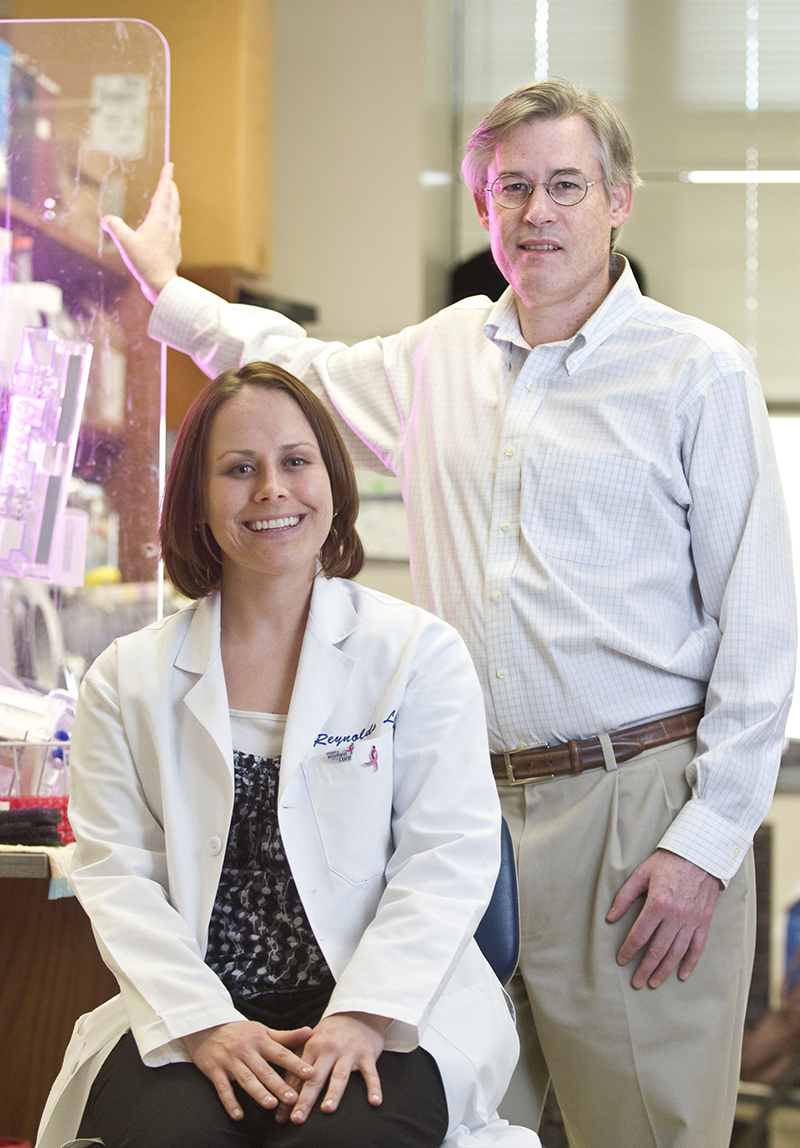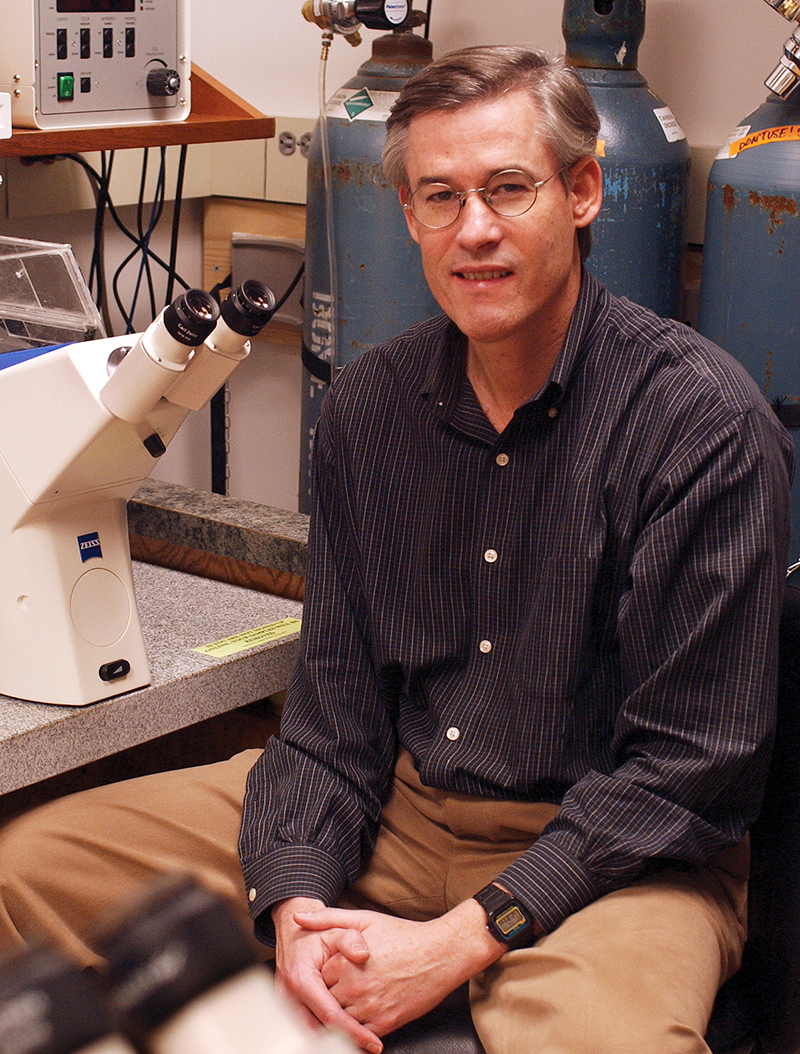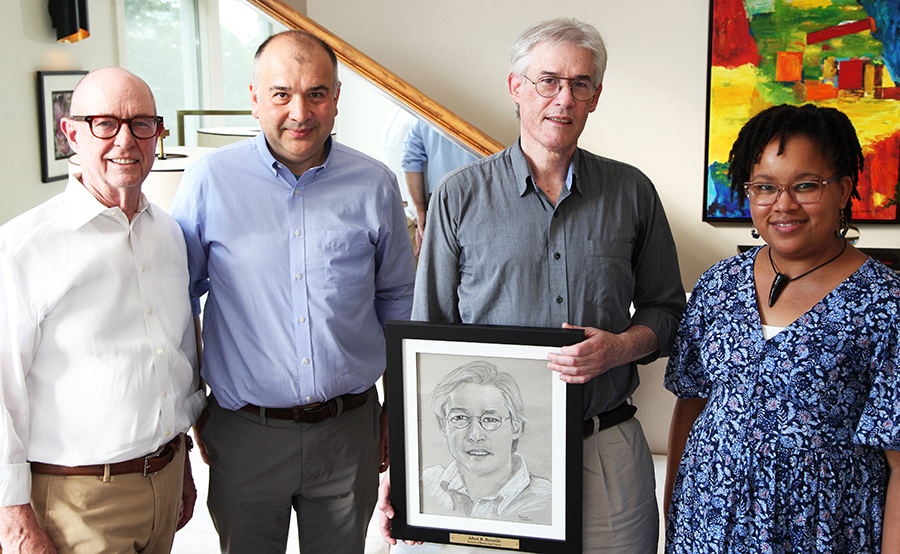By Leah Mann

Albert “Al” Reynolds, celebrated and respected professor of pharmacology, emeritus, passed away earlier in November. He had retired in August after 26 years at Vanderbilt University.
In the nearly three decades of Reynolds’ affiliation with Vanderbilt, he established himself not only as an expert in cancer research, but also as an academician with a passion for teaching. According to longtime colleague Ann Richmond, professor of pharmacology and Ingram Professor of Cancer Research, “Al was a superb mentor for the students in his lab and served as a role model for many of us who sought to inspire students to utilize their creativity, intelligence, and technical skills to approach key biological questions like he did.”
Reynolds received a bachelor of arts in biology at Kenyon College and a doctor of philosophy in cell biology at the University of Virginia under the mentorship of Gene Oliphant. Following a four-year postdoctoral fellowship at the University of Virginia Cancer Center in the lab of J. Thomas Parsons, Reynolds joined St. Jude Children’s Research Hospital to establish his own lab. He joined the Vanderbilt faculty in 1996.
Throughout his time here, Reynolds excelled in various leadership and mentoring positions. From 2000 to 2006 he was the Director of the Cancer Biology Graduate Program. Later, from 2008 to 2013, he served as a leader of the Vanderbilt-Ingram Cancer Center Program in Signal Transduction and Cell Proliferation. Reynolds was also the Executive Director of the Vanderbilt Antibody and Protein Core Resource between 2009 and 2017.

Early in his career, Reynolds was influential in research surrounding Src, a Rous Sarcoma Virus-derived oncogene (a gene with the potential to cause cancer). “He was a whiz at making monoclonal antibodies,” Scott Hiebert, the Hortense B. Ingram Professor in Cancer Research and professor of biochemistry, said. He and Reynolds first met while working at St. Jude Children’s Research Hospital. Hiebert went on: “This skill allowed him to identify p120—a catenin—and other proteins as Src substrates.” Catenins contribute to several fundamental processes, including cell-to-cell adhesion and cell signaling, in multicellular animals.
Reynolds’ later work focused on p120, a crucial regulatory element of cadherin, a molecule necessary for maintaining contact between cells. His discoveries in this field earned him the moniker “father of p120.” He specifically focused on phosphorylation, the cellular process by which proteins are modified by the addition of a phosphate group. Among his pivotal contributions were the development of key antibodies for phosphorylated tyrosine residues and the identification of the mechanisms following certain phosphorylation events.
In addition to his prowess in the lab, Reynolds was also a successful inventor. “Essentially in his garage he built lab equipment that he thought his lab needed,” Hiebert said. “His most famous product was the ‘belly dancer,’ which was used to swish solutions over western blots but could [physically] rock many other lab experiments.” Reagents he developed are also in use around the world.

Despite his retirement earlier this year, Reynolds had still hoped to contribute to and support graduate courses at Vanderbilt. “Retirement didn’t mean he stopped being a scientist –it just gave him more time to read and think,” said Richmond. Reynolds was not only a “thought driver” in science, she said, but also a man of compassion, fondly remembered for intense academic conversations and profoundly respected by his peers.
Reynolds encompassed the essence of a professional educator and researcher, from his support for his trainees and colleagues to his serious interest in and fascination with science. “We will all miss him deeply,” Richmond said.